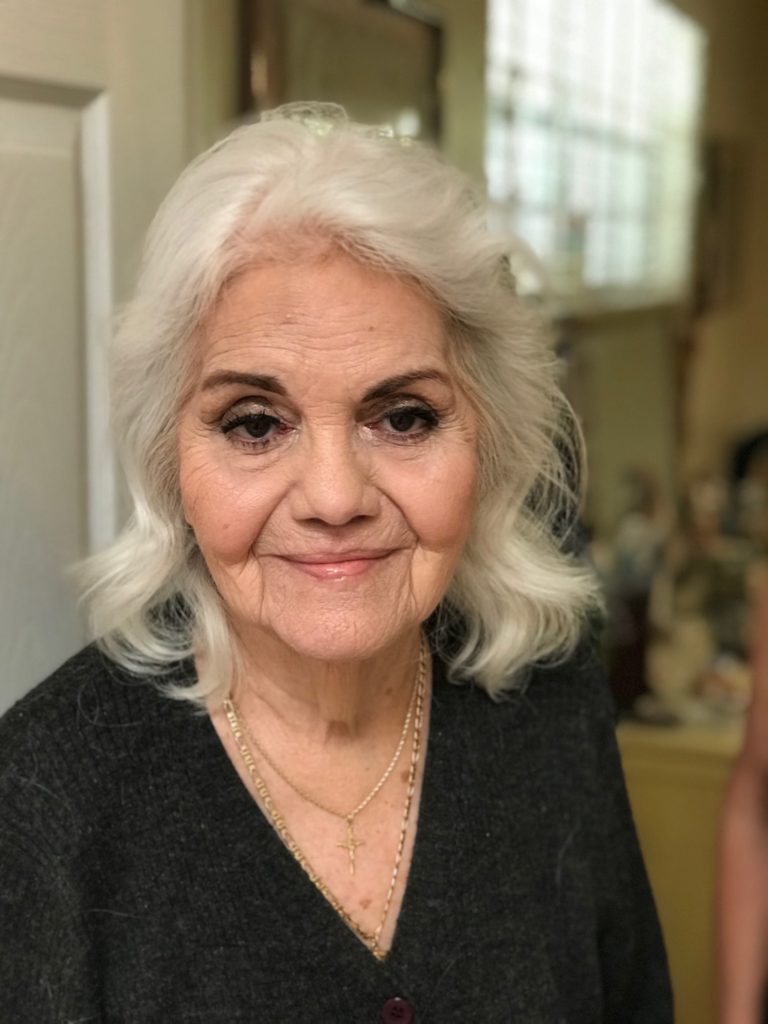I want to write to you about joy.

For the 38 years of my life that I can remember, I have studied that discipline. Fumbling toward hope and misunderstanding my own purpose, which I sabotage at inopportune moments, I seek joy daily, though its conditions retain for me the opaque beauty of a foreign language.
I need to be clear in this essay. Six weeks ago, I lost my abuela. She cared for me from when I was a newborn until I was twelve years old. In the intervening 26 years before her death, we spoke nearly every day. Not too long. Five minutes, maybe ten if she got going. “Ya te dí la lectura de hoy,” she’d say to close it out with an embarrassed laugh that I didn’t believe. She was canny. I called her in compressed time – in the car between interviews, before the baby woke up, after I’d written something good – and she knew that if I were anticipating thirty minutes of dialogue, I’d call less often. She kept our talks short. I’d like to believe it’s not because I bored her.
During my childhood, my mom supported our intergenerational household with a serious career in public service. In her later years, she dedicated her life to her parents, moving to their Floridian city to provide care that began as daily and became round-the-clock as they disintegrated until their deaths. Six weeks have passed since my mom lost her mom, and no hugs. I live in Seattle, where my husband, sons and I have been sheltering in place for two months.
Those scant eight weeks presented dueling tasks.
I had to cancel or reschedule the 35 book tour events that I had planned to support my first novel, which launched in April after more than a decade of work. Simultaneously – and this was part of my actual strategy, not what the pandemic landed upon me – I had to write, revise, submit and promote a dozen short works of nonfiction, from reviews of other people’s books to literary conversations held with my favorite authors to essays like the one you are scrolling through. Hello, reader! I am here for you.
I am also supposed to be here for my children, ages 4 and 6. Home from school by government decree, they will be with me until summer. Let’s get real. They will be with me until September, and possibly beyond. My sons are, shall we say, full of energy. We are lucky — my husband can work from home.
As I mother my book and our sons, I grieve my losses.
Every weekday before dawn, when the cold light brightens to cobalt and birds begin their refrain, my best friend comes over to work out. We’ve been at it for four years, this ritual of jumping and squatting and telling each other about our lives during boxer shuffle breaks between trainings. A foster mother to three shining children, she is busy. In an era of social distance, we make time for each other from opposite sides of my basement, where we keep the doors open, steam curling from our sweat.
Though my anguish is real, so too is my privilege. I can make deadlines from home, though a freelancer’s position is always precarious. After shedding half of all staff jobs during the past ten years, newsrooms are down to the nubbin. I worry and wait and hustle my work out the door while people are still reading essays and writing checks. I can weather deferring my tour for a book my abuela did not hold before dying because I can survive anything. My family has shown me how.
The loss of a matriarch can occasion intergenerational reorganization, I’m told. My source is a lawyer, my father. He should know. Having stewarded many estates, he has seen more situations than he allows himself to discuss. Not like me, the personal essayist. Foreclosed from physical contact with my fellow mourners, my mother a daughter become the grandmother, I keen for Abuela alone. My kids don’t really get it. Too young, and I’m glad.
But they know to love what I love, and together in our implausibly happy home, we knit a daily life of laughter, shared meals and unprecedented screen time. While they are transfixed by their tablets, crushing educational apps so they can unlock time to stroll each other’s worlds in Minecraft, I write. Stopping and starting, fits and spurts, and too much scrolling through our shared concerns. My editor asked me to provide a narrative reportage of COVID-19 in Seattle, but what I can share is this prism of my life in the Rainier Valley, where the skies have quieted so that I can trace the birds kindling the trees with song.
I am writing before dawn. Soon, my friend will text me a sparkly emoji to signify she has woken. When she comes into my house – the only one, aside from my husband and sons, who has crossed that threshold in the past eight weeks of lockdown – she will be holding her own glass of water, which she will set to the side of my kitchen sink while she washes her hands. In my basement, we will take our positions in front of the laptop, where we will lunge and kick and sweat to the movements of fit strangers who can’t see us. My sons will descend in their pajamas to swing and twirl on hanging rings installed by my husband to be their ninja training ground.
Real life, virtual and ongoing.
Kristen Millares Young is the author of Subduction, a novel published by Red Hen Press.
